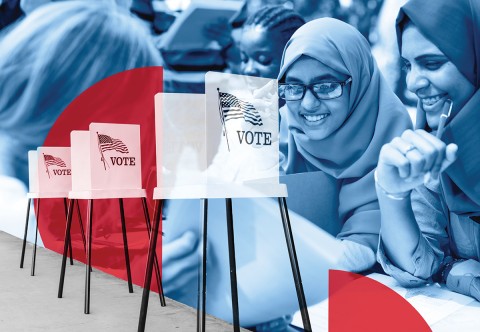Muslim voters are getting organized for the 2020 election
And they could determine the outcome.

This November, Jad Salamey will vote in a presidential election for the first time—and he’s hoping to bring his entire community with him.
The 20-year-old student at Wayne State University in Detroit spends his free time phone banking, canvassing, and organizing other college students in an attempt to convince the estimated 100,000 Muslims registered to vote in Michigan to cast their ballots in the fall. Salamey and other organizers across the country say that Muslims could be a deciding factor in the 2020 election, especially in crucial swing states such as Michigan, Pennsylvania, Ohio, and Virginia, which have large Muslim populations.
The key, however, is getting them to the polls.





